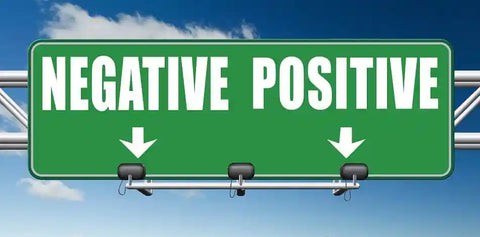The Positive Aspects of Negative Feedback from Journal Editors
Every writer has heard the old adage that any response is better than no response at all when it comes to the comments offered by readers, and given the increased ability of today’s readers to register their opinions online, it is helpful to reflect on the value of negative reviews. However, when an academic or scientific writer has just received negative feedback from an acquisitions editor, a peer reviewer or a respected mentor, it can be very difficult indeed to consider that feedback remotely positive. If you succeed, you can transform a potentially detrimental experience into an inspiring one.
Among the most devastating negative feedback is the letter you receive from an editor informing you that your submission for publication has not been accepted. Perhaps the worst of these letters is the one that seems less innocuous at first because it contains no reasons at all for the rejection. Beyond consulting the publisher guidelines to ensure that your manuscript meets all requirements and rereading your text to be sure there are no glaring errors, there is little to be done. The letters that look the worst initially, however, because they itemise the problems identified by the editor and peer reviewers rarely prove to be so very bad. For one, the fact that a busy editor has bothered to provide you with detailed criticism regarding the ways in which your text is lacking and can be improved shows that your work has value in his or her eyes. The letter may even suggest that your writing will be reconsidered for publication once the problems are resolved, but if it does not, you can certainly respond with an explanation of the changes you plan to make and, at the same time, ask if your manuscript will be reconsidered or accepted once the revisions are complete. If the answer is yes, the experience will likely prove positive.
The process of revising your writing in response to specific comments can be a positive experience in itself. It is likely that you have already discovered this to be the case when your mentors provided feedback and requested revisions in the writing you produced while working on your thesis or dissertation. Painful as the revision process may seem, the way in which it forces you to reconsider your own thoughts, procedures and writing can be incredibly helpful, and you probably discovered that your work improved and your thesis or dissertation became a much more valuable document due to the constructive criticism you received. The process can be equally rewarding when you are revising and refining your manuscript for publication, and you may even want to ask those mentors who proved so helpful in the past or perhaps some of your new colleagues to read both your document and the feedback you received and then offer their own insight.
If the problems identified by the editor included issues with your formatting, language or references, you may also want to engage the services of an academic or scientific proofreader who specialises in your discipline and subject area. Such a professional can lessen the burden of revision while ensuring that your manuscript is polished to perfection before you resubmit it, and the techniques you may learn from his or her work will provide valuable help for future publications.
Why Our Editing and Proofreading Services?
At Proof-Reading-Service.com we offer the highest quality journal article editing, dissertation proofreading and online proofreading services via our large and extremely dedicated team of academic and scientific professionals. All of our proofreaders are native speakers of English who have earned their own postgraduate degrees, and their areas of specialisation cover such a wide range of disciplines that we are able to help our international clientele with research editing to improve and perfect all kinds of academic manuscripts for successful publication. Many of the carefully trained members of our manuscript editing and proofreading team work predominantly on articles intended for publication in scholarly journals, applying painstaking journal editing standards to ensure that the references and formatting used in each paper are in conformity with the journal’s instructions for authors and to correct any grammar, spelling, punctuation or simple typing errors. In this way, we enable our clients to report their research in the clear and accurate ways required to impress acquisitions proofreaders and achieve publication.
Our scientific proofreading services for the authors of a wide variety of scientific journal papers are especially popular, but we also offer manuscript proofreading services and have the experience and expertise to proofread and edit manuscripts in all scholarly disciplines, as well as beyond them. We have team members who specialise in medical proofreading services, and some of our experts dedicate their time exclusively to dissertation proofreading and manuscript proofreading, offering academics the opportunity to improve their use of formatting and language through the most exacting PhD thesis editing and journal article proofreading practices. Whether you are preparing a conference paper for presentation, polishing a progress report to share with colleagues, or facing the daunting task of editing and perfecting any kind of scholarly document for publication, a qualified member of our professional team can provide invaluable assistance and give you greater confidence in your written work.
If you are in the process of preparing an article for an academic or scientific journal, or planning one for the near future, you may well be interested in a new book, Guide to Journal Publication, which is available on our Tips and Advice on Publishing Research in Journals website.








